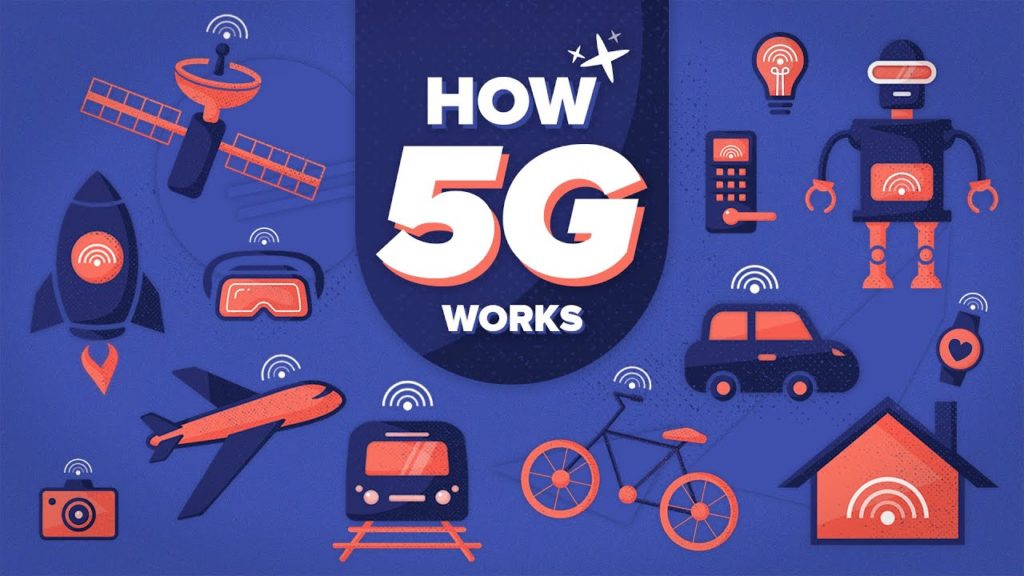5G is the fifth generation of wireless technology and promises to bring faster internet speeds, lower latency, and improved connectivity. However, there are also concerns about the potential negative effects of 5G on health and the environment.
The rollout of 5G networks is ongoing in various parts of the world, and the technology is still in the early stages of adoption. This provides an opportunity to explore the potential benefits and drawbacks of 5G and what it means for consumers.
Related:
On one hand, 5G has the potential to bring significant benefits to consumers. Some of these benefits include faster download and upload speeds, lower latency, and improved overall connectivity. This could lead to improved streaming experiences, more reliable connections, and better support for technologies such as virtual and augmented reality.
In addition, 5G is expected to enable new applications and services in areas such as health, transportation, and education. On the other hand, there are concerns about the potential negative effects of 5G on health and the environment.
The higher frequency of 5G signals compared to previous generations of wireless technology means that more energy is absorbed by human bodies and the environment. There are also concerns about the security of 5G networks, particularly in the context of the increasing importance of and dependence on technology in our daily lives and the potential for malicious and bad actors to exploit vulnerabilities in these networks.
Related:
Given these considerations, the rollout of 5G networks and the adoption of 5G technology by consumers is an ongoing and evolving process. As 5G technology becomes more widely available, it will be important for consumers to be informed about its benefits and drawbacks, and to make informed decisions about whether and how to use it.
5G and its impact on Consumers’ Health
The impact of 5G technology on health and the environment is a topic of ongoing debate and research.
On the health front, some concerns have been raised about the potential health effects of 5G technology, particularly with regard to the non-ionizing radiofrequency (RF) radiation that is emitted by 5G towers and devices.
Some studies have suggested that exposure to this type of radiation may be associated with an increased risk of cancer, reproductive problems, and other health issues. It is important to note that the evidence for these effects is still limited and inconclusive.
- The 5G Health Hazard That Isn’t
- Can 5G technology cause cancer? There’s a lot we don’t know and it’s scary
5G And the Environment
In terms of the environment, there are concerns about the energy consumption and carbon footprint of 5G networks. 5G networks require more infrastructure and equipment than previous generations of wireless technology. This can and will increase energy consumption and greenhouse gas emissions.
Additionally, the production of 5G devices and equipment is energy-intensive and can contribute to the depletion of natural resources and the creation of electronic waste.
It is important to note that the impact of 5G technology on health and the environment is still an active area of research, and many questions remain unanswered. Some experts believe that the benefits of 5G, such as improved communication and increased efficiency, will ultimately outweigh any negative impacts, while others believe that more research and regulatory action is needed to ensure that 5G is deployed in a safe and sustainable manner.
Overall, the impact of 5G technology on health and the environment is a complex and multi-faceted issue, and it will be important to continue to carefully monitor and evaluate the effects of 5G as the technology continues to evolve and be deployed on a wider scale.
5G in Africa
The situation regarding 5G in Africa is still in its early stages. The deployment of 5G technology on the continent is currently limited, with only a few countries have begun to roll out 5G networks. We have since seen MTN, Vodacom ,and Safaricom among other top players in the continent rolling out their 5G networks.
- List of African Countries Testing 5G Technology
- Safaricom 5G Speed Tests: How Good Is It?
- Safaricom 5G Network Is Officially Live In Kenya: All You Need to Know
However, there is significant interest in technology, and many African countries are exploring the potential benefits of 5G for their citizens and businesses.
One challenge for 5G in Africa is the lack of infrastructure and investment in the telecommunications sector. Building out 5G networks requires significant investment in infrastructure, and many African countries are facing challenges in securing the funding needed to deploy 5G.
Additionally, there are concerns about the availability of affordable 5G-enabled devices for consumers, particularly in less developed regions of the continent. That is changing however with players like Infinix, TECNO, Vivo, and even Xiaomi slowly but steadily building their 5G device portfolio.
- Infinix Zero 5G Unveiled in Nigeria: Specs, Price and Availability
- Vivo set to Launch its First 5G Phone in Kenya, Vivo V23 5G
- Tecno POVA 5G is Tecno’s First 5G Smartphone, But Should You Buy It?
Despite these challenges, there is significant potential for 5G to bring benefits to Africa. The technology has the potential to improve connectivity, support the development of new applications and services, and drive economic growth. As the rollout of 5G continues, it will be important to carefully consider the potential benefits and drawbacks of the technology and to ensure that it is deployed in a way that benefits the people and businesses of Africa.
Recently, we got word that Starlink is set to launch in Kenya and a bunch of other African markets this year. That still attracts a pretty penny and with the 5G rollout costing an arm and a leg as well, it’ll be interesting to see how both ventures fair on.
- How to get Starlink in Nigeria
- Starlink’s Availability in Africa: List of Countries We Can Expect a Launch in 2023
- How to Sign up to Receive Starlink Availability in Your Country
Oh, the 5G Promises!
5G technology is expected to play a major role in the growth of the Internet of Things (IoT). IoT refers to the growing network of physical devices, vehicles, home appliances, and other items embedded with electronics, software, and connectivity, allowing them to collect and exchange data.
5G’s higher speed, lower latency, and increased capacity compared to previous generations of wireless technology make it well-suited for supporting the growth of IoT. The technology is expected to enable the connection of billions of devices and objects, creating new opportunities for automation, data collection and analysis, and the creation of new products and services.
In addition to IoT, 5G is expected to bring benefits to a range of other industries and applications, including:
- Virtual and Augmented Reality: 5G‘s low latency and high speed make it ideal for supporting virtual and augmented reality applications, allowing users to experience these technologies with greater realism and interactivity.
- Healthcare: 5G has the potential to support telemedicine and remote patient monitoring, enabling healthcare professionals to provide care and treatment from a distance.
- Transportation: 5G has the potential to support the development of self-driving cars, connected vehicles, and smart transportation systems, enabling safer, more efficient, and more sustainable mobility.
- Industrial automation: 5G has the potential to support the development of Industry 4.0, enabling the automation of factories and other industrial processes, and increasing productivity and efficiency.
- Gaming: 5G has the potential to support cloud gaming, enabling users to play high-quality games on mobile devices without the need for a console or high-end computer.
These are just a few examples of the many potential applications and benefits of 5G technology, which is expected to bring significant changes and improvements to a range of industries and areas of our lives.
So what does that Promise look like in 2023?
Today, the promise of 5G technology is starting to become a reality. A growing number of countries and regions around the world have made significant strides toward the deployment of 5G networks, and more and more 5G-enabled devices are becoming available for consumers. However, the rollout of 5G technology is still in its early stages, and many challenges and limitations remain.
In terms of the benefits of 5G, some early adopters of the technology are already reporting improvements in speed, capacity, and latency compared to previous generations of wireless technology. For example, 5G is enabling faster download and upload speeds, making it possible to stream video and use other bandwidth-intensive applications with greater ease. Additionally, the increased capacity of 5G networks is making it possible to connect more devices and objects to the network, supporting the growth of the Internet of Things.
Overall, while the promise of 5G technology is becoming a reality in some ways, there is still much work to be done to fully realize the potential of 5G. As the rollout of 5G continues, it will be important to carefully consider the benefits and drawbacks of the technology and to ensure that it is deployed in a way that benefits society as a whole.
Discover more from Dignited
Subscribe to get the latest posts sent to your email.












